- International Degrees
- Applicants whose first language is not English
- International MA Applicants
- International PhD Applicants
International Degrees
Not all international degrees are recognized for admissions purposes.
- Different degree requirements may apply to you if you completed some of your education outside of Canada.
- Not all international institutions are recognized for this purpose.
Further details on eligibility rules for students from other countries, including a list of eligible international institutions broken down by countries, are available from the School of Graduate Studies.
Please note that if your university does not appear on the SGS list, or you do not have the correct degrees, but you still wish to apply, you should contact Jessica Chlebowski, graduate administrator, at crimsl.grad@utoronto.ca. It may be possible to admit you by petitioning to the School of Graduate Studies.
Applicants whose first language is not English
Applicants to either the MA or the PhD programs whose first language is not English must take a Test of English as a Foreign Language (TOEFL) with both a verbal and a written component.
Official copies of these scores must be submitted to the University before a formal offer of admission can be made. Detailed information on the TOEFL can be found on their website.
An overall score of 580 and a written score of 5.0 on the paper-based test are the minimum standards. With the computer-based test, an overall score of 237 and a written score of 5 are required.
With the Internet-based TOEFL test, the overall score of 93 is considered by ETS to be the equivalent ot 580 (paper-based) or 237 (computer-based) on the current test. The Writing section score of 22 equates roughly to a score of 5.0 on the Test of Written English (TWE).
MA Applicants
International students are those who do not hold Canadian citizenship or permanent residence. We welcome applications by such students, however there are different fees for Canadian and some international master’s students.
Note that there are two categories of international student.
- If you are the spouse of a Canadian citizen or permanent resident, but you do not currently hold permanent residence, you are considered an “exempt” international student. This means that
- You may apply to our master’s program without any restriction.
- You will be charged the Canadian resident tuition and fees of $8,491.00.
- You are eligible for financial aid from the Centre on the same basis as Canadian students.
- If you are not in this “exempt” category, you are considered a “visa student.” As such,
- You will be charged tuition and fees of $22,603.00.
- You are not eligible for most financial aid from the Centre. However, we occasionally do provide some funding for exceptionally qualified international MA students.
- You are also eligible to work as a teaching assistant in of our undergraduate courses, or as a research assistant for a professor. However, we cannot guarantee that such opportunities will be available, and they will not be included in any offer of admission that we may make to you.
PhD Applicants
International students are those who do not hold Canadian citizenship or permanent residence. We welcome applications by such students, however, there are certain rules governing admission of international doctoral students that you should note.
In particular, there are two categories of international student.
- If you are the spouse of a Canadian citizen or permanent resident, but you do not currently hold permanent residency, you are considered an “exempt” international student. This means that:
- You may apply to our doctoral program without any restriction.
- You are eligible for the same basic financial aid package that Canadian resident students receive.
- Please disregard the rest of this section.
- If you are not in this “exempt” category, you are considered a “visa student.”
To our regret, certain policies of the provincial government and the university itself strictly limit the number of visa students our Centre can admit with funding. This numeric limitation is known as our international student “quota.”
At the same time, the university’s policies also do not permit doctoral students to be “self-funded.”
- All students who are admitted must either be funded by the university or by some other institution.
- You may not take out loans, use your own savings, or work off campus to pay your tuition.
- Academic units of the university are responsible for providing minimum funding to anyone they admit who does not have support from the university or another institutional source.


